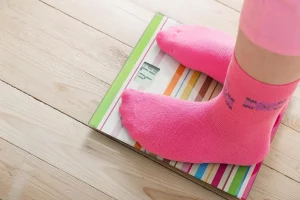When was the last time you bought something made in the U.S.? Right, maybe never – or hardly ever, if you count the goodies you snagged on Etsy or at a local craft fair.
Designers, retailers, artists and tech entrepreneurs across the country hope to change that as they form enclaves supporting all things made in America. Over the last few years, creative collectives sprouted in New York, San Francisco and Portland, touting the benefits of local manufacturing and the art of high quality craftsmanship. Some have certified logos, such as “Made in NY” or “SFMade,” proudly bearing the city’s cultural identity.
These groups are part of a bubbling movement of “makers,” a big umbrella word for the people who are turning mass production on its head. They include DIY hobbyists, hardware machine tinkerers and web 2.0 startups, artisans who design and make their own products and services, rather than buy pre-packaged goods often made overseas.
Aided by the communal sphere of social media, they can now collaborate and share their creations online and in physical spaces. Makers are often driven by a desire to focus on quality over quantity, and have the flexibility of creating smaller production runs.
Tech blogs have been documenting the growth of makers: A whole ‘zine is devoted to them. GigaOm wonders if there’s a cap to the market. Chris Anderson of Wired gives three reasons for how makers are transforming everything about manufacturing.
Individuals have always made stuff, but now with more sophisticated web tools, more are banding together to build their businesses, hire employees and learn from each other’s artisanship.
The movement caught on in New York City, where businesses apply for the right to display the “Made in NY” logo. The We Are Made in NY campaign originally began for media and entertainment productions, but it recently expanded to also include tech startups.
In California, SFMade launched in 2010 and has since worked to develop traditional manufacturing companies and tech startups and connect job seekers to local businesses. Los Angeles is a major base for a few made-in-the-USA fairs, such as Unique LA and Craft Renegade. Some state representatives are even pushing a bill to put some kind of label on California-made goods.
Up north in Portland, Ore., the Made in Portland website is dedicated to the “band of rebels who’ve given up on the popular notions of success and conformity.” Hand-drawn illustrations list beer, bikes, coffee and web startups produced in the city. Another site, Portland Made, has a members-only forum, as well as blog posts about the indie designers who made a hive-shaped light fixture and a desk sustainably made from ash trees.
These groups hope consumers will become more savvy about who made their stuff — and how. Looks like makers are here to stay.

















